How economic pain came to trump ethnic and religious issues in Sri Lanka’s election
Sri Lanka’s economy, left in tatters by previous leaders, is the grim reminder on every person’s mind who votes in elections
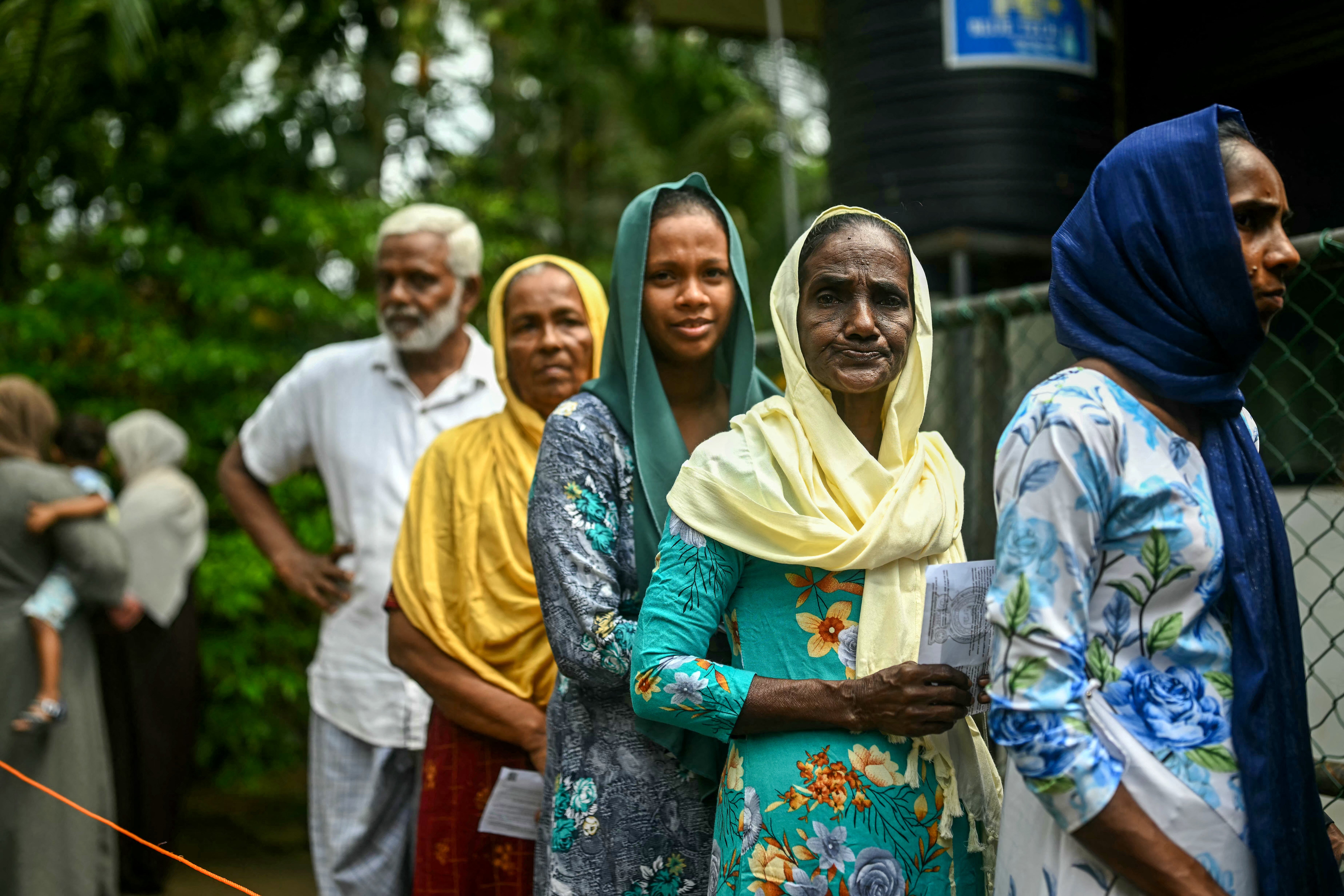
Your support helps us to tell the story
From reproductive rights to climate change to Big Tech, The Independent is on the ground when the story is developing. Whether it's investigating the financials of Elon Musk's pro-Trump PAC or producing our latest documentary, 'The A Word', which shines a light on the American women fighting for reproductive rights, we know how important it is to parse out the facts from the messaging.
At such a critical moment in US history, we need reporters on the ground. Your donation allows us to keep sending journalists to speak to both sides of the story.
The Independent is trusted by Americans across the entire political spectrum. And unlike many other quality news outlets, we choose not to lock Americans out of our reporting and analysis with paywalls. We believe quality journalism should be available to everyone, paid for by those who can afford it.
Your support makes all the difference.Two years ago, food cart worker Fathima Shiyama had to wait in line, sometimes for days, to get cooking gas, fuel and other essentials. It was a test of patience for her and millions of other Sri Lankans as their country languished in economic and political chaos.
Since then, under president Ranil Wickremesinghe, the South Asian island nation's economy has begun a fragile recovery. As the country gears up for a crucial presidential vote, key economic indicators have improved and there are no shortages of food and fuel. Inflation is almost under control after peaking at 70 per cent.
Sri Lankans who usually vote along religious and ethnic lines will be keeping the state of the economy in mind when they vote on Saturday on a new president. Many are still struggling, borrowing money or leaving the country to cope with rising living costs and limited opportunities.
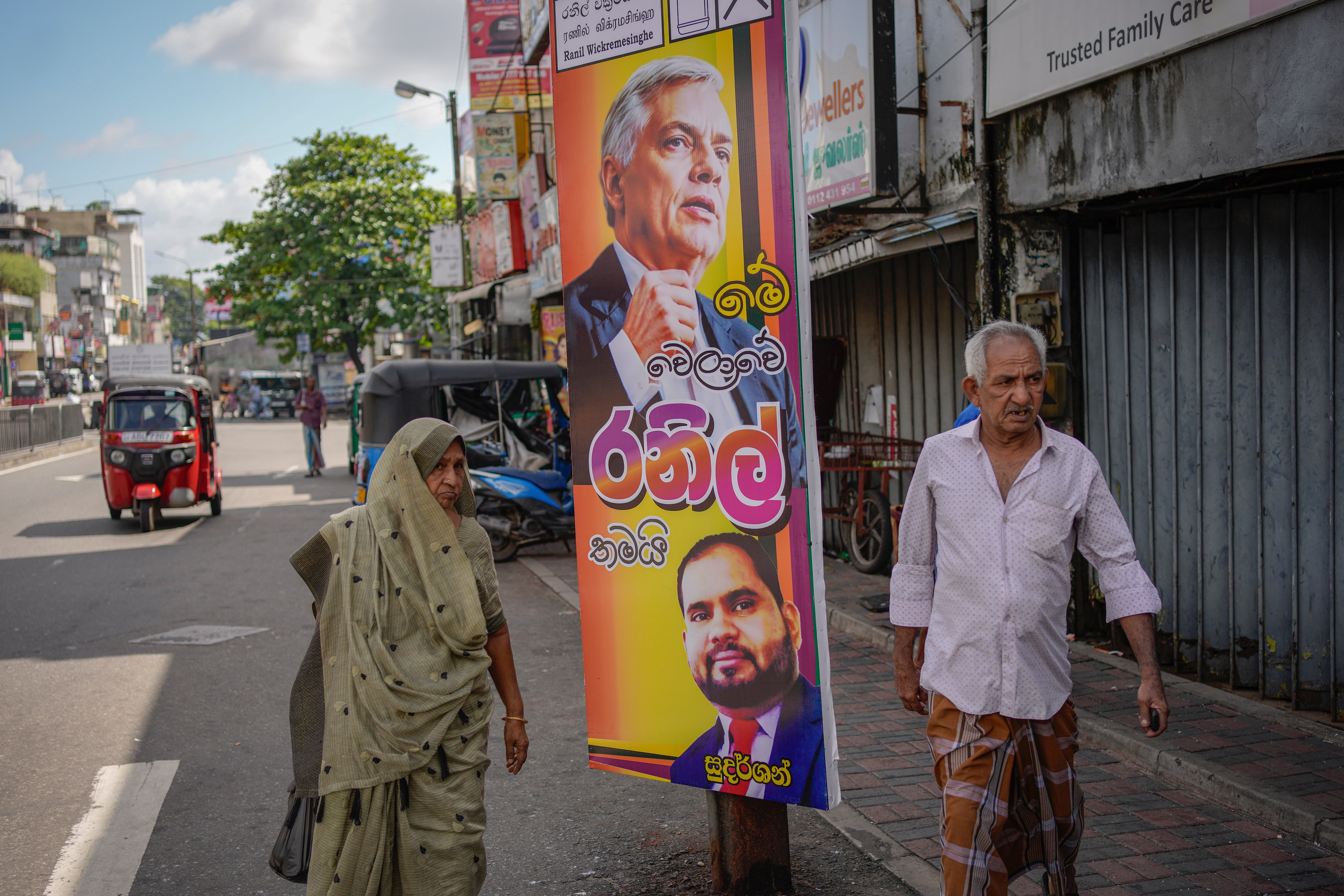
Shiyama says she isn’t still earning enough to cover her monthly expenses and pay for her ailing daughter’s medical tests. In desperation, she has turned to borrowing from loan sharks at an exorbitant 20 per cent interest rate.
“We are trying our best to survive despite many difficulties,” said the 48-year-old mother of five, as she was selling “string hopper” noodles and coconut “pittu,” popular traditional dinner items, from a cart on the outskirts of Colombo.
As Sri Lanka sank into economic collapse in 2022, a popular uprising led its then president Gotabaya Rajapaksa to flee the country.
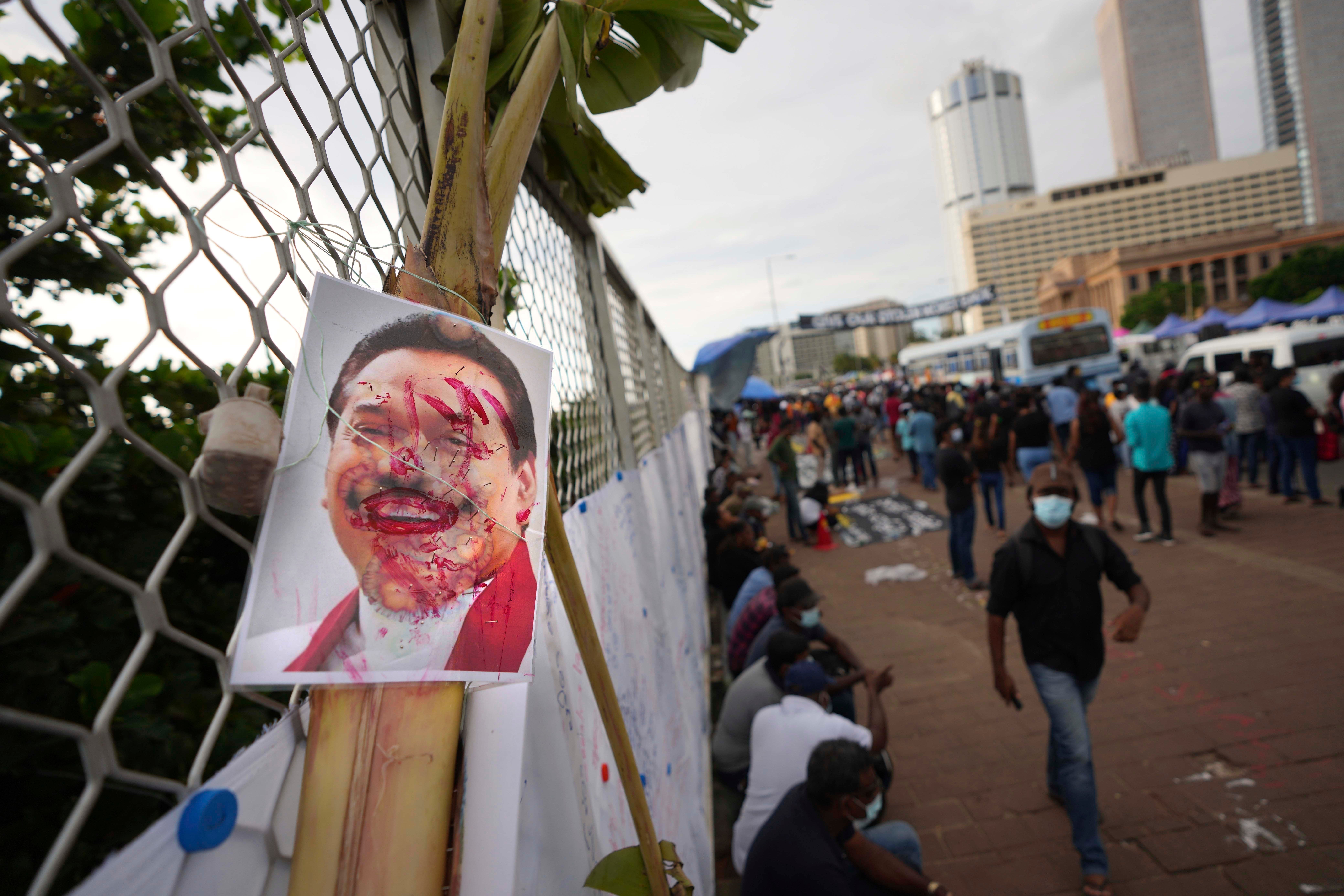
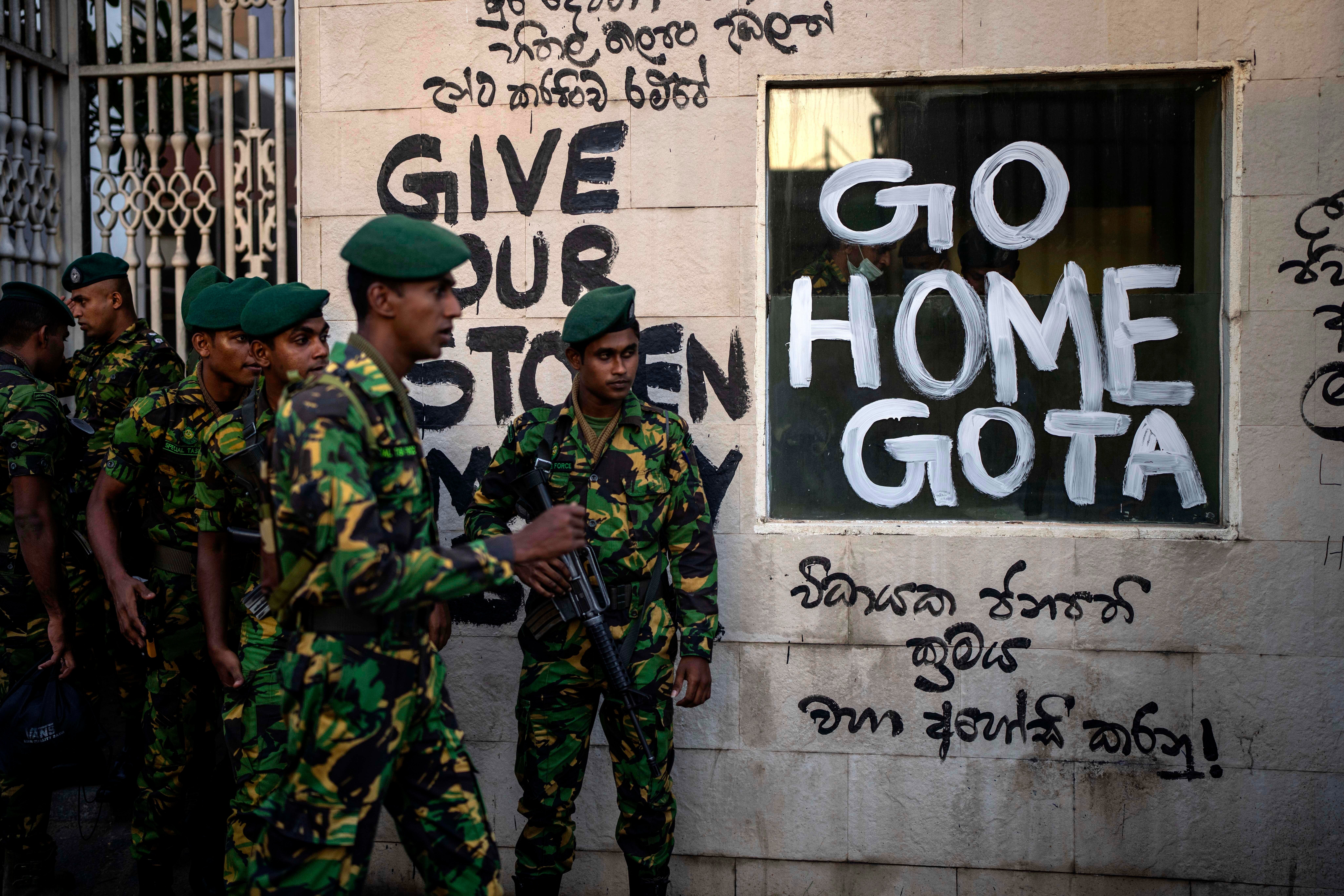
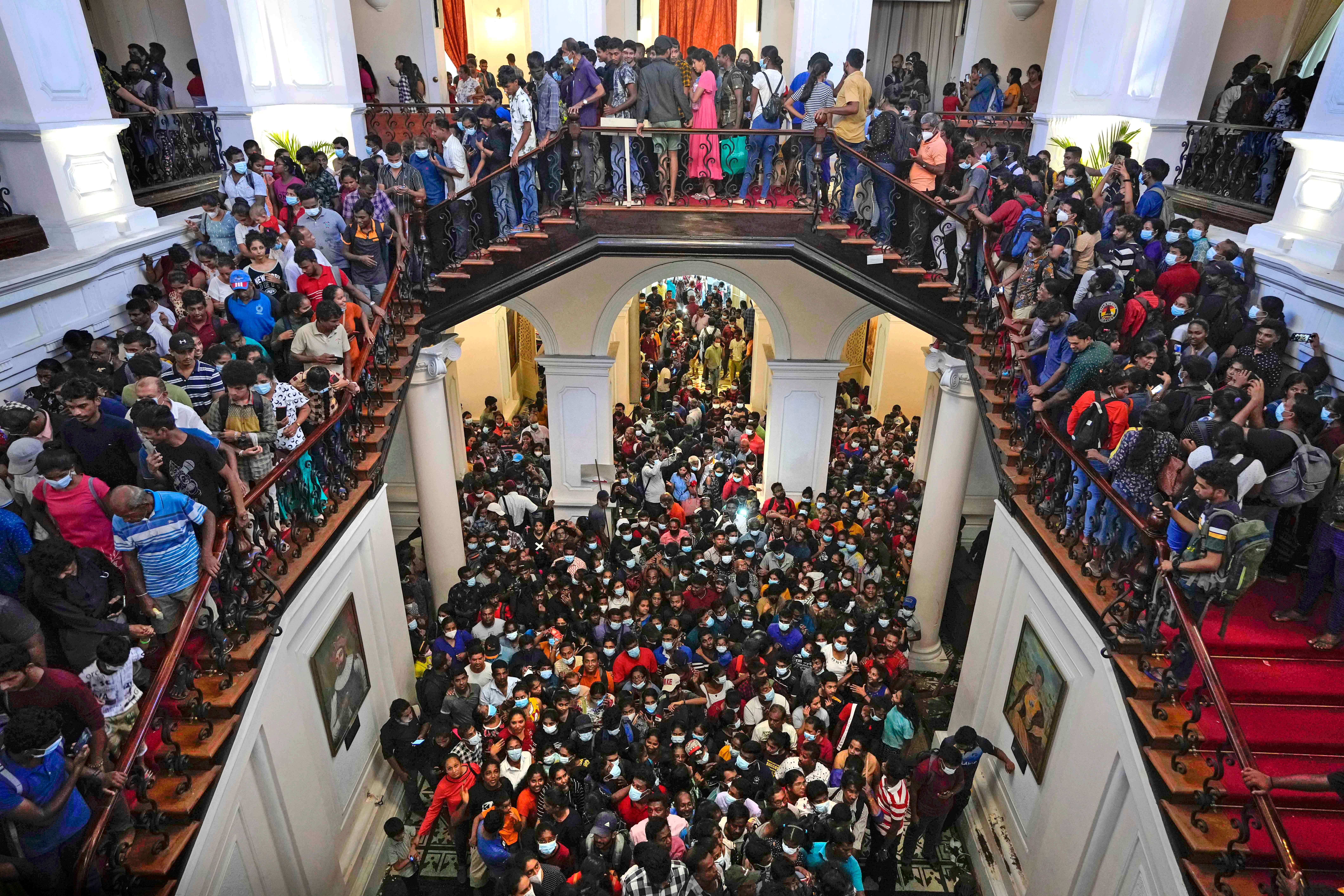
This weekend's election pits his successor, Mr Wickremesinghe, against opposition leader Sajith Premadasa and Anura Dissanayake, leader of a Marxist-led coalition that has been gaining popularity. Poll results are due Sunday.
All the candidates have promised to lead Sri Lanka into a prosperous future by developing new industries, improving agriculture, broadening the tax base to increase revenue and creating tens of thousands of new jobs.
Under Mr Wickremesinghe, Sri Lanka has been negotiating with international creditors to restructure the country's staggering debt and get the economy back on track. The International Monetary Fund approved a four-year bailout program last year, but many Sri Lankans are unhappy over the government’s efforts to increase revenue by raising electricity rates and imposing heavy taxes on professionals and businesses, to meet IMF conditions for its assistance.
Overall conditions have improved after the long dry spell during and after the pandemic. Vital tourism earnings have risen and the Sri Lankan rupee has recovered. But rising prices due to the government's austerity measures are squeezing many households.
“We are in a very critical time” said Murtaza Jafferjee, an economic analyst and chairman of Advocata Institute, a Colombo-based independent policy think tank.
"The economy is looking up,” he said, but has not fully recovered. The government should aim for at least 4% growth this year, instead of its target of per cent. Politicians need to focus on policies that don't just benefit the country's elite, Mr Jafferjee said.
“It is high time that we run this country for the benefit of the 22 million people,” he said.
Sri Lanka’s economic crisis began well before the upheavals of 2022.
Staggering economic mismanagement by successive governments was compounded by poor policy choices and then the pandemic. Rajapaksa pushed through big tax cuts in 2019. Then, he banned imports of chemical fertilizer to preserve Sri Lanka’s scarce foreign reserves, hurting crop yields in a a country largely dependent on agriculture.
With the war in Ukraine, food and fuel prices surged and fuel, cooking gas, medicine and food ran short. Sri Lankans lined up for government rice handouts and charity meals.
Today, inflation has dropped below 5 per cent and there's no need to line up to buy essentials. But key parts of the economy remain in crisis.
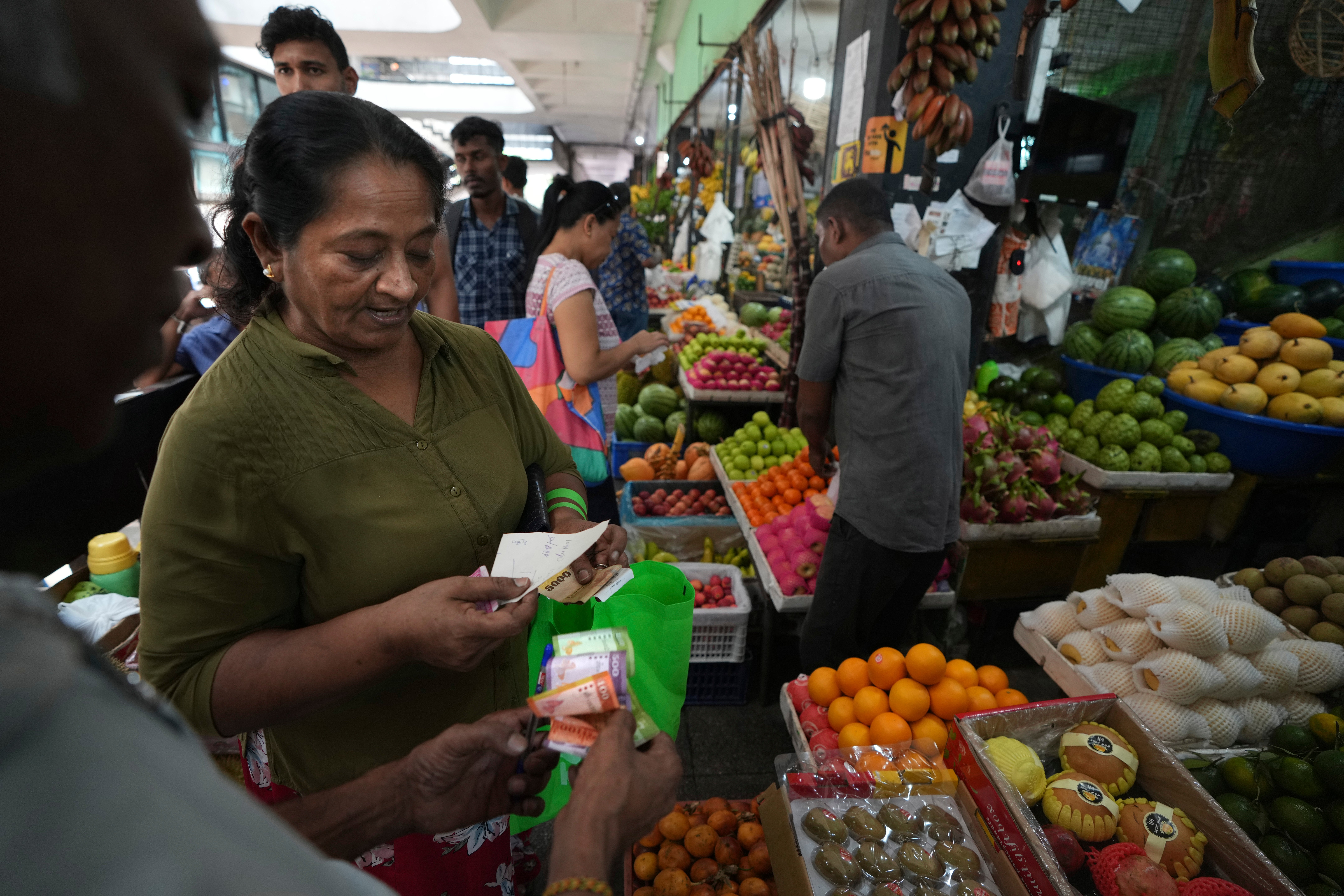
Jagath Dissanayake said conditions remain dire for his construction firm in Gampaha, a town located about 30 kilometers (19 miles) north of Colombo after prices of building materials tripled. Most of Dissanayake projects are suspended and he had to lay off two-thirds of his employees.
“People have no money to do new construction as they give priority to buying essentials. We hardly get any new work," Mr Dissanayake said.
His income is down almost 75 per cent, he said, so there is no more dining out and Dissanayake rides a motorbike instead of driving a car, to save money on fuel.
“Of course, there are no queues for petrol anymore, but we don't have enough money to buy it.” he said.
Sri Lanka’s construction industry has shed about 400,000 jobs in the last four years, according to some estimates. Once a booming industry that contributed nearly 12 per cent to the country’s growth figures, its share has dropped to 7 per cent this year.
Many Sri Lankans have sought jobs abroad.
Viraj Maduranga, formerly a teacher in a government school, went to Dubai in 2021 to find work when he became unable to repay loans he had taken to build his house and buy a vehicle.
“Either I had to sell off the house and the car, or find an alternative income. So, I decided to leave. It was not an easy decision for me and my wife, but we have to make sacrifices to build our lives,” said Mr Maduranga, who now works as a teacher in Dubai and won’t be able to vote in the election.
Not everyone is impressed with the promises made by the candidates in this election.
“We have seen it in the past, politicians saying various things, but when they come into power they have simply ignored what they have said during campaigns,” said WA Wijewardena, an economic analyst and former deputy governor of Sri Lanka's central bank.
Mr Jafferjee, the economic analyst, said the election is “extremely crucial” for Sri Lanka’s economic recovery. The next president should use his executive powers to “enact pro-consumer policies" and be more open to trade.
“This (crisis) is not insurmountable, but you need to make unpopular choices. What you need basically is a president who looks to grow the pie," said Mr Jafferjee.
In the meantime, Sri Lankans like Maduranga are impatiently waiting for change.
He longs to rejoin his wife and 8-year-old son in Sri Lanka, but still needs to repay his loans.
“This is not the best time to go back," Mr Maduranga said. “I want to live in Sri Lanka as a free man without being indebted to anyone.”